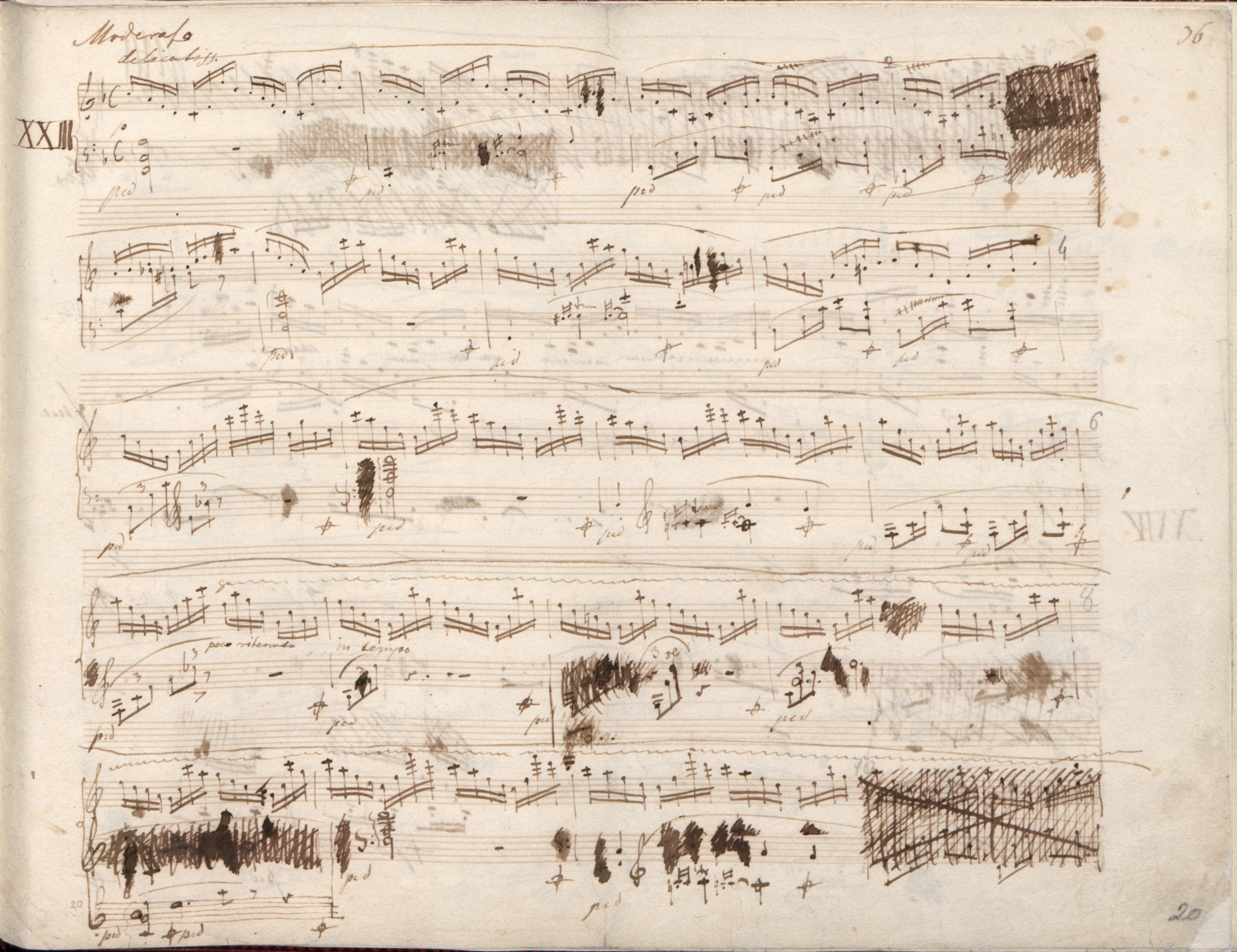




|
Annotation in FED, probable interpretation |
|
|
|
No teaching fingering |
It is uncertain what the addition in FED under the 12th and 13th semiquavers means. The majority of editors considers (silently) that it is impossible to interpret it in a reasonable manner; there are also editors who see two fingering digits there, i.e. 1 1, which is, however, difficult to adapt to the remaining part of the figuration in this bar:
- in his edition of the Preludes (Peters 1984), Paul Badura-Skoda assumes that the digits were written a semiquaver too early (by mistake); therefore, it means that the f2,g2 semiquavers at the beginning of the 4th group should be performed consecutively with the 1st R.H. finger.
- in his online edition of the Preludes*, Franco Luigi Viero suggests that the ones should stay where they are, but he assigns the former (g2) to the L.H., while the latter (f2) to the R.H.; the following g2 note should be then performed by the L.H. again.
Actually, none of the above suggestions interprets the marks visible in FED – the former puts the addition in a different place, whereas in the latter the digits added next to each other are supposed to indicate the hands playing alternately, which Chopin would mark differently (with digits above and under the notes, with lines separating the intercepted note from the other ones or with an additional beam). But most importantly, none of the above interpretations takes into account two horizontal lines (little slurs?) under the alleged digits.
According to us, it is most likely that they are not digits at all, but stems and a semiquaver beam; in this context, they can mean only one thing, i.e. the marked notes should be played by the L.H. This is meant to facilitate the performance, although it is not obvious at first glance – instead of eliminating the tenth leap, it allows to keep the R.H. in a position that enables its performance. We do not offer this interpretation in the main text due to it being uncertain.
* http://www.audacter.it/28.2.comme.pdf [accessed on: 22/04/2023], p. 50.
Compare the passage in the sources »
category imprint: Graphic ambiguousness; Interpretations within context; Differences between sources
issues: Annotations in teaching copies, Annotations in FED
notation: Fingering

